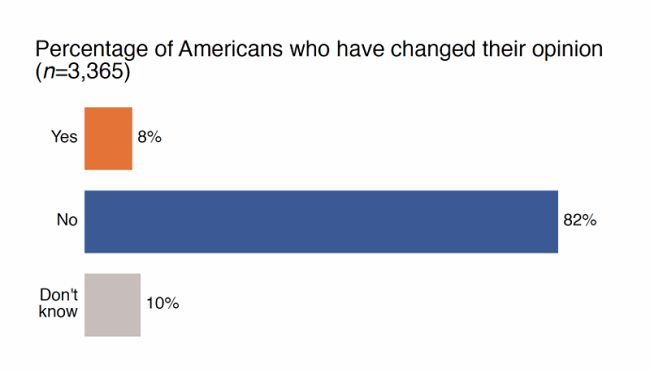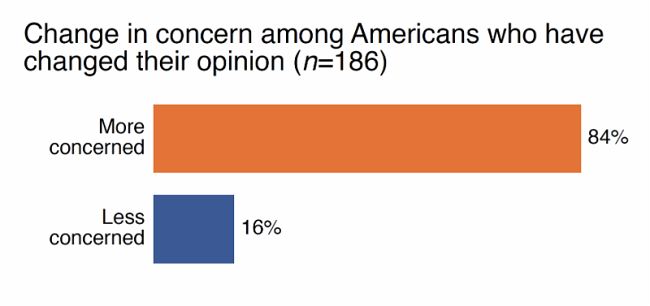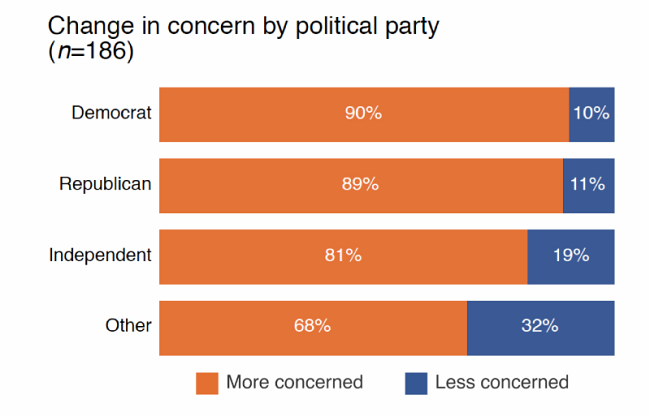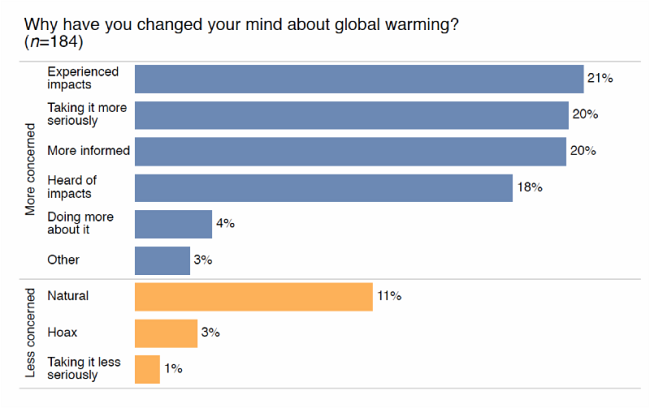As of March 2018, the majority of Americans (73%) believe that global warming is happening, and over half of registered voters (59%) believe that humans are the primary cause. These numbers are believed to have grown in recent years, and even six in 10 Trump voters support taxing and/or regulating the pollution that causes global warming.
Who exactly has changed their mind and why, however, is not well understood, says the Centre for Climate Change Communication of the George Mason University in Fairfax, Virginia which, in the bid to examine the scenario, analysed nationally representative survey data that asked Americans whether they had changed their opinions about global warming, and if so, why?
The Centre found that, across three surveys, 8% of Americans had recently changed their opinion about global warming.

To determine if some groups of people were more likely to have changed their minds about global warming, the Centre examined respondents’ answers across different demographics. It found relatively small differences, it says, adding that exceptions included Democrats (10%) who were slightly more likely than Independents (6%), older adults (65+; 11%) were more likely than young adults (18 to 24; 6%), and women (10%) were more likely than men (6%) to have changed their minds.

Of those respondents who expressed a change in their level of concern in a clear direction (n=186), the great majority (84%) said that they had become more concerned about the issue; 16% said they had become less concerned. Similar proportions of Democrats and Republicans became more concerned, while fewer Independents and people not affiliated with a major political party or not interested in politics became more concerned.

Of people who became more concerned about global warming, the most common reasons given were: 1) directly experiencing climate change impacts; 2) taking it more seriously (for unspecified reasons); 3) becoming more informed about global warming; and 4) hearing about climate change impacts.
Of people who became less concerned about global warming, the most common reasons given for changing their minds were: 1) believing that global warming is a natural process (not human-caused), and 2) believing that global warming is a lie or hoax. However, 24% of those who changed their opinion did not provide a complete or clear response as to why (these individuals are excluded from these analyses).

In conclusion, in each of several recent surveys, a small but meaningful number of American adults reported having changed their minds about global warming – with more than four out of five of them becoming more concerned. Most people offered three different reasons why they changed their minds: they had either personally experienced climate impacts or heard about them; they learned more about the problem; or they had come to see the problem as more serious.
This suggests that efforts to communicate about the reality of human-caused climate change, and its current relevance to Americans – including its impacts on local temperatures, precipitation, and extreme weather patterns – may be helping some Americans better understand the problem.
